Ditapis dengan

E-book Programming Languages and Systems
Compiler correctness is an old idea [37,40,41] that has seen a significant revival in re-cent times. This new wave was started by the creation of the CompCert verified C com-piler [33] and continued by the proposal of many significant extensions and variants ofCompCert [8,9,12,23,29,30,42,52,56,57,61] and the success of many other mile-stone compiler verification projects, including Vellvm [64]…
- Edisi
- -
- ISBN/ISSN
- 9783030449148
- Deskripsi Fisik
- 785 hlm
- Judul Seri
- -
- No. Panggil
- 005.13 PET p
E-book Eyewitness Travel: Boston
See all of the beautiful and historic sites of Boston with our DK Eyewitness Travel Guide. Whether you're on the lookout for walking tours, scenic sites, and outdoor activities, or you're planning on enjoying attractions like Boston Common, Fenway Park, or historic Harvard University, our travel guide has all the best tips for every budget, plus restaurant and hotel recommendations and fun acti…
- Edisi
- -
- ISBN/ISSN
- 9781465460264
- Deskripsi Fisik
- 210 halaman, ilus.
- Judul Seri
- -
- No. Panggil
- 910 BRO e

E-book Marx: A Very Short Introduction
In Marx: A Very Short Introdution, Peter Singer identifies the central vision that unifies Marx's thought, enabling us to grasp Marx's views as a whole. He sees him as a philosopher primarily concerned with human freedom, rather than as an economist or a social scientist. In plain English, he explains alienation, historical materialism, the economic theory of Capital, and Marx's ideas of commun…
- Edisi
- -
- ISBN/ISSN
- 9780192854054
- Deskripsi Fisik
- 120 halaman
- Judul Seri
- -
- No. Panggil
- 320.5322 SIN m

E-book The Laws of Thermodynamics: A Very Short Introduction
The laws of thermodynamics drive everything that happens in the universe. From the sudden expansion of a cloud of gas to the cooling of hot metal--everything is moved or restrained by four simple laws. Written by Peter Atkins, one of the world's leading authorities on thermodynamics, this powerful and compact introduction explains what these four laws are and how they work, using accessible lan…
- Edisi
- -
- ISBN/ISSN
- 9780199572199
- Deskripsi Fisik
- 121 halaman
- Judul Seri
- -
- No. Panggil
- 536.7 ATK t 002841-eB-0122

E-book Byzantium: A Very Short Introduction
After surviving the fifth century fall of the Western European Roman Empire, the Byzantine Empire flourished as one of the most powerful economic, cultural, and military forces in Europe for a thousand years. In this Very Short Introduction Peter Sarris introduces the reader to the unique fusion of Roman political culture, Greek intellectual tradition and Christian faith that took place in t…
- Edisi
- -
- ISBN/ISSN
- 9780199236114
- Deskripsi Fisik
- 322 halaman
- Judul Seri
- -
- No. Panggil
- 949.5 SAR b
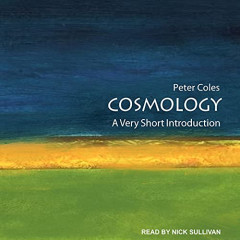
E-book Cosmology: A Very Short Introduction
Written in simple and accessible language, this nontechnical introduction to cosmology, or the creation and development of the universe, explains the discipline, covers its history, details the latest developments, and explains what is known, what is believed, and what is purely speculative. In addition, the author discusses the development of the Big Bang theory, and more speculative modern is…
- Edisi
- -
- ISBN/ISSN
- B095J99XTN
- Deskripsi Fisik
- 143 halaman
- Judul Seri
- -
- No. Panggil
- 113 COL c

E-book Hegel: A Very Short Introduction
Hegel is regarded as one of the most influential figures on modern political and intellectual development. After painting Hegel's life and times in broad strokes, Peter Singer goes on to tackle some of the more challenging aspects of Hegel's philosophy. Offering a broad discussion of Hegel's ideas and an account of his major works, Singer explains what have often been considered abstruse and ob…
- Edisi
- -
- ISBN/ISSN
- 9780192801975
- Deskripsi Fisik
- 160 halaman, illus.
- Judul Seri
- -
- No. Panggil
- 921 SIN h
E-book The Blue Compendium : From Knowledge to Action for a Sustainable Ocean…
Global food demand is rising, and serious questions remain about whether supply can increase sustainably (FAO 2018). Land-based expansion is possible but may exacerbate cli-mate change and biodiversity loss, and compromise the delivery of other ecosystem services (Olsen 2011; Foley et al. 2005, 2011; Mbow et al. 2019; Amundson et al. 2015). As food from the sea represents…
- Edisi
- -
- ISBN/ISSN
- 9783031162770
- Deskripsi Fisik
- 914 hlm
- Judul Seri
- -
- No. Panggil
- 577.6 LUB t
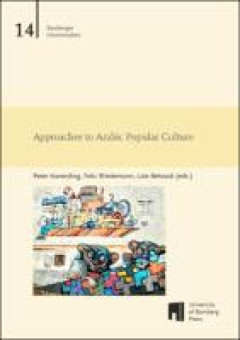
E-book Approaches to Arabic Popular Culture
Over recent years, Arabic popular culture has become a focal point of West Asian and North African studies. Most of the new research dealing with it concentrates on the ‘popular’ as opposed to an intellectual ‘high’ culture far from the harsh and hierarchically organized reality many Arabic-speaking societies face today. Popular cultural practices are thus seen as a rejection of the eli…
- Edisi
- -
- ISBN/ISSN
- 9783863097660
- Deskripsi Fisik
- 230 halaman
- Judul Seri
- -
- No. Panggil
- 801.2 KON a
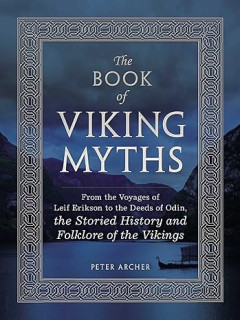
E-book The Book of Viking Myths: From The Voyages of Leif Erikson to The Deed…
For thousands of years, Vikings have held a storied place in our culture—their distinct appearance, their mighty longships, their reputation for causing death and destruction. But who were these strange and mysterious folk? The Book of Viking Myths retells the stories of the Viking people, with myths of their gods and goddesses, monsters, and great heroes. From tales of the beautiful and p…
- Edisi
- -
- ISBN/ISSN
- 9781507201435
- Deskripsi Fisik
- 201 halaman
- Judul Seri
- -
- No. Panggil
- 948 ARC t
E-book Animal Emotions : How They Drive Human Behavior
Uually, our emotions are strongly controlled. Therefore, we seldom experience situations of raw affect, where emotions simply overwhelm us. This is basically a good thing, because controlling our ancestral emotional urges helps us to respond more appropriately to most of the daily situational demands of our modern society. It is simply not acceptable to always show an emotional response i…
- Edisi
- -
- ISBN/ISSN
- 9781950192915
- Deskripsi Fisik
- 161 hlm
- Judul Seri
- -
- No. Panggil
- 591.5 MON a
E-book HBR's 10 Must Reads on MANAGING YOURSELF
The path to your professional success starts with a critical look in the mirror. HBR's 10 Must Reads on Managing Yourself will inspire you to: stay engaged throughout your fifty-plus-year work life; tap into your deepest values; solicit candid feedback; replenish physical and mental energy; balance work, home, community, and self; spread positive energy throughout your organization; rebound …
- Edisi
- -
- ISBN/ISSN
- 9781422157992
- Deskripsi Fisik
- 216 halaman
- Judul Seri
- -
- No. Panggil
- 650 HAR h
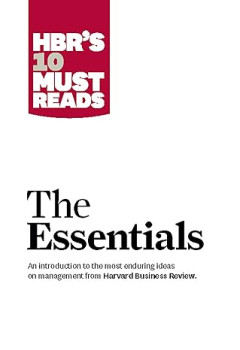
E-book HBR'S 10 Must Reads: THE ESSENTIALS
Change is the one constant in business, and we must adapt or face obsolescence. Yet certain challenges never go away. That's what makes this book "must read." These are the 10 seminal articles by management's most influential experts, on topics of perennial concern to ambitious managers and leaders hungry for inspiration--and ready to run with big ideas to accelerate their own and their compani…
- Edisi
- -
- ISBN/ISSN
- 9781422133446
- Deskripsi Fisik
- 235 halaman
- Judul Seri
- -
- No. Panggil
- 650.07 HAR h
E-book Cognitive Hyperconnected Digital Transformation : Internet of Things I…
n recent years, the Internet of Things (IoT) has been gathering pace andunleashing a very disruptive potential. According to Gartner, nearly fivebillion “things” were connected in 2015 and the number will reach 50 billionby 2020. However, the IoT does not only have a disruptive power but it isalso one of the main drivers and enablers for the Digitising European Industry…
- Edisi
- -
- ISBN/ISSN
- 9788793609112
- Deskripsi Fisik
- 337 hlm
- Judul Seri
- -
- No. Panggil
- 621.382 ROH c
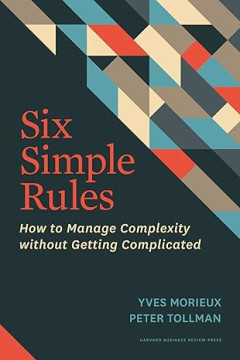
E-book Six Simple Rules: How to Manage Complexity without Getting Complicated
Does your organization manage complexity by making things more complicated? If so, you are not alone. According to The Boston Consulting Group’s fascinating Complexity Index, business complexity has increased sixfold during the past sixty years. And, all the while, organizational complicatedness?that is, the number of structures, processes, committees, decision-making forums, and systems?h…
- Edisi
- -
- ISBN/ISSN
- 9781422190555
- Deskripsi Fisik
- 113 halaman
- Judul Seri
- -
- No. Panggil
- 658 MOR s
E-book Small-scale Mushroom Cultivation : Oyster, Shiitake and Wood Ear Mushr…
Mushrooms belong to the kingdom of Fungi, a group very distinct from plants, animals and bacteria. Fungi lack the most important feature of plants: the ability to use energy from the sun directly through chlorophyll. Thus, fungi depend on other organisms for food, absorbing nutrients from the organic material in which they live. The living body of the fungus is mycelium made out of a tiny web o…
- Edisi
- -
- ISBN/ISSN
- 9085730384
- Deskripsi Fisik
- 87 hlm
- Judul Seri
- -
- No. Panggil
- 635.8 OEI s
E-book 100 Jahre Politikwissenschaft in Hamburg : Bruchstücke zu einer Insti…
Als Siegfried Landshut im Februar 1950 zwei Gastvorträge im Hauptgebäude derUniversitätHamburghielt,kehrteererstmalsandenOrtzurück,vondemerknapp17 Jahre zuvor als Jude vertrieben worden war.1Zum Sommersemester 1951 erhielter dann den neu eingerichteten Lehrstuhl für die »Wissenschaft von der Politik«,einen der ersten seiner Art in der Bundesrepublik. An der Etablierung der Poli-tikwissen…
- Edisi
- -
- ISBN/ISSN
- 9783839453346
- Deskripsi Fisik
- 383 hlm
- Judul Seri
- -
- No. Panggil
- 320.43 NIE e
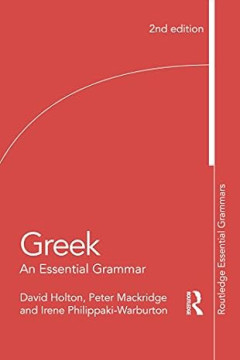
E-book Greek: An Essential Grammar of the Modern Language, 2nd Edition
Greek: An Essential Grammar is a concise and user-friendly reference guide to modern Greek. It presents a fresh and accessible description of the language in short, readable sections. Explanations are clear and supported by examples throughout. This new edition has been revised and updated to present an accurate and accessible description of the most important aspects of modern Greek.
- Edisi
- -
- ISBN/ISSN
- 9781315680309
- Deskripsi Fisik
- 297 halaman
- Judul Seri
- -
- No. Panggil
- 480 HOL g
E-book The New Public Diplomacy : Soft Power in International Relations
The idea to create this book was triggered by the feeling that the debate about public diplomacy after September 2001 had mainly taken place in the press and that the time was ripe for students of diplomacy to look at this phenomenon. In the early stages of the book it became clear how much confusion still surrounded public diplomacy (that is, the relationship between diplomats and the foreign …
- Edisi
- -
- ISBN/ISSN
- 9781403945167
- Deskripsi Fisik
- 246 hlm
- Judul Seri
- -
- No. Panggil
- 327.2 MEL t
E-book Cities, Monuments and Objects in the Roman and Byzantine Levant
Cities, Monuments and Objects in the Roman and Byzantine Levant celebrates Gabriel Mazor and his lifetime of work at the monumental city of Nysa-Scythopolis, Bet She?an Bays?n. This metropolis, part of the storied Decapolis, or league of ten cities, that flourished during the Hellenistic, Roman-Byzantine and very early Islamic periods until the devastating earthquake of AD 748, has been the sin…
- Edisi
- -
- ISBN/ISSN
- 9781803273358
- Deskripsi Fisik
- 318 halaman
- Judul Seri
- -
- No. Panggil
- 938.0

E-book Bonsai: Technique, Styles, Display, Ideas
Bonsai brings serenity to the home with beautiful miniature trees in idyllic container landscapes. Now DK brings this ancient practice into the 21st century, explaining how to grow and care for bonsai trees with a clear step-by-step approach. Offering easy-to-follow advice and simple photography, Bonsai demystifies the art of bonsai with sequences covering the traditional styles of Chokkan, Mo…
- Edisi
- -
- ISBN/ISSN
- 9781465419583
- Deskripsi Fisik
- 226 halaman, ilus.
- Judul Seri
- -
- No. Panggil
- 635.9772 WAR b
E-book Space: A Visual Encyclopedia
Featuring a wealth of never-before-published NASA photographs, charts, stories, and contributions by NASA astronauts and experts, A Visual Encyclopedia is a comprehensive exploration of space from our nearest planets and stars to far-off galaxies. Supports the Common Core State Standards.
- Edisi
- -
- ISBN/ISSN
- 9780756662776
- Deskripsi Fisik
- 258 halaman, ilus.
- Judul Seri
- -
- No. Panggil
- 523.4 BON s
E-book Handbook of Ocean Wave Energy
There is a great demand for renewable energy and a need to diversify the renewableenergy mix. This can easily be seen on the significant annual increase in globalinvestment in renewable energy, such as wind and solar. Wave energy has even beenadditionally stimulated in some countries as they recognise its benefits and greatpotential. The technology push came mainly in the form of public grants …
- Edisi
- -
- ISBN/ISSN
- 9783319398891
- Deskripsi Fisik
- 305 hlm
- Judul Seri
- -
- No. Panggil
- 620 PEC h

E-book Design Thinking and Storytelling in Architecture
This book offers a systematic account of the process of designing in architecture. Design thinking can be regarded as a fundamentally different way of knowing the world and a particular form of addressing creative problems. In this publication, the authors undertake to explore multiple and often controversial theoretical stances on the topic. Underlying principles of inquiry are present in all …
- Edisi
- -
- ISBN/ISSN
- 9783035628111
- Deskripsi Fisik
- 168 halaman
- Judul Seri
- -
- No. Panggil
- 720.6 ROW d
E-book The Jesus Mysteries
- Edisi
- -
- ISBN/ISSN
- 0722536771
- Deskripsi Fisik
- 256 halaman
- Judul Seri
- -
- No. Panggil
- 232 FRE t
- Edisi
- -
- ISBN/ISSN
- 0722536771
- Deskripsi Fisik
- 256 halaman
- Judul Seri
- -
- No. Panggil
- 232 FRE t
E-book Creative Close-Ups: Digital Photography Tips & Techniques
- Edisi
- -
- ISBN/ISSN
- 978047052712
- Deskripsi Fisik
- 243 halaman, ilus.
- Judul Seri
- -
- No. Panggil
- 770 DAV c
- Edisi
- -
- ISBN/ISSN
- 978047052712
- Deskripsi Fisik
- 243 halaman, ilus.
- Judul Seri
- -
- No. Panggil
- 770 DAV c
E-book Ocean: The Definitive Visual Guide
- Edisi
- -
- ISBN/ISSN
- 9871465419682
- Deskripsi Fisik
- 514 halaman, ilus.
- Judul Seri
- -
- No. Panggil
- 577.73 FRA o
- Edisi
- -
- ISBN/ISSN
- 9871465419682
- Deskripsi Fisik
- 514 halaman, ilus.
- Judul Seri
- -
- No. Panggil
- 577.73 FRA o
E-book Electoral Management Design
The credibility and legitimacy of electoral processes is inextricably linked to electoral integrity. The Global Commission on Democracy, Elections and Security identified five major challenges to the conduct of elections with integrity in its 2012 report: building the rule of law to substantiate claims to human rights and electoral justice, developing professional and competent electoral manage…
- Edisi
- revised ed.
- ISBN/ISSN
- 9789187729669
- Deskripsi Fisik
- 480 hlm
- Judul Seri
- -
- No. Panggil
- 324.6 CAT e
E-book The Global E-waste Monitor 2020 : Quantities, Flows, and The Circular …
This monitor provides the most comprehensive update of global e-waste statistics. In 2019, the world generated a striking 53.6 Mt of e-waste, an average of 7.3 kg per capita. The global generation of e-waste grew by 9.2 Mt since 2014 and is projected to grow to 74.7 Mt by 2030 – almost doubling in only 16 years. The growing amount of e-waste is mainly fueled by higher consumption rates of EEE…
- Edisi
- -
- ISBN/ISSN
- 9789280891140
- Deskripsi Fisik
- 120 hlm
- Judul Seri
- -
- No. Panggil
- 628.4 FOR t
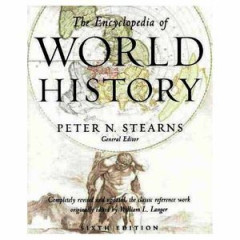
E-Book The Encyclopedia of World History: Ancient, Medieval, and Modern - Six…
Renowned historian Peter N. Stearns and thirty prominent historians have combined their expertise over the past ten years to perfect this comprehensive chronology of more than 20,000 entries that span the millennia from prehistoric times to the year 2000.
- Edisi
- -
- ISBN/ISSN
- 0227679687
- Deskripsi Fisik
- 3540 halaman
- Judul Seri
- -
- No. Panggil
- 903 STE t
E-book Textbook of Plastic and Reconstructive Surgery
Plastic and reconstructive surgery is a branch of surgery that specialises in restoring form and function to damaged or missing tissues and skin. The causes of such defects are usually related to surgery, injury, illness or congenital abnormality. This rapidly evolving specialty is based upon the exploitation of key principles of anatomy, physiology, pathology and surgery. Mastery of these prin…
- Edisi
- -
- ISBN/ISSN
- 9781910634394
- Deskripsi Fisik
- 491 hlm
- Judul Seri
- -
- No. Panggil
- 617.95 ADI t
E-Book Visnu-Narayana: Changing Forms and the Becoming of a Deity in Indian R…
The contributions collected in this volume deal with the complex history of the Indian deity Vi??u-N?r?yana. This conception of God evolved in various traditions in India, especially in South India, during the first millennium CE. The history of this development is reconstructed here by various means, including philological exegesis, the history of ideas, and iconographic evidence.
- Edisi
- -
- ISBN/ISSN
- -
- Deskripsi Fisik
- 502 halaman
- Judul Seri
- -
- No. Panggil
- 294.5 SCH v

E-Book The End of the Book of Numbers: On Pentateuchal Models and Composition…
It has become increasingly clear that Numbers is the litmus test for new ideas relating to the formation of the Pentateuch. At the same time the profusion of ideas has only resulted in a corresponding lack of agreement between scholars. In the present study, Jordan Davis grants significant attention to the geographical references found at the end of the book of Numbers, combining archaeological…
- Edisi
- -
- ISBN/ISSN
- 9783161618567
- Deskripsi Fisik
- 326 halaman
- Judul Seri
- -
- No. Panggil
- 200.19 DAV t
E-book Botany Illustrated : Introduction to Plants, Major Groups, Flowering P…
The major category is called a division and is equivalent to phylum in the animal kingdom. Division name endings indicate plants (-phyta) and fungi (-mycota). In the top illustration are some examples of Magnoliophyta, the flowering plant division. The endings of lesser categories indicate class (-opsida), subclass (-idea), order (-ales), and family (-aceae). Classification of one specific plan…
- Edisi
- -
- ISBN/ISSN
- 0387288759
- Deskripsi Fisik
- 291 hlm
- Judul Seri
- -
- No. Panggil
- 580 GLI b
E-book Handbook of Herbs and Spices
The history of herbs and spices is as long as the history of mankind. People have used these plants since earliest times. No other commodity has played a more pivotal role in the development of modern civilization as spices. The lives of people and plants are more entwined than is often realized. Some herbs have the power to change our physiological functioning, they have revolutionized medicin…
- Edisi
- Vol. 2
- ISBN/ISSN
- 185573835X
- Deskripsi Fisik
- 365 hlm
- Judul Seri
- -
- No. Panggil
- 635.7 PET h
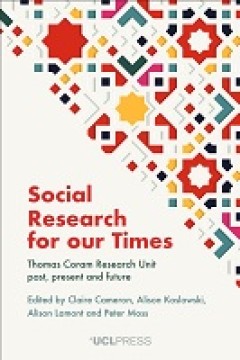
E-Book Social Research for our Times: Thomas Coram Research Unit past, presen…
For 50 years, researchers at UCL’s Thomas Coram Research Unit have been undertaking ground-breaking policy-relevant social research. Their main focus has been social issues affecting children, young people and families, and the services provided for them. Social Research for our Times brings together different generations of researchers from the Unit to share some of the most important result…
- Edisi
- -
- ISBN/ISSN
- 9781800084056
- Deskripsi Fisik
- 418 halaman
- Judul Seri
- -
- No. Panggil
- 300.72 CAM s
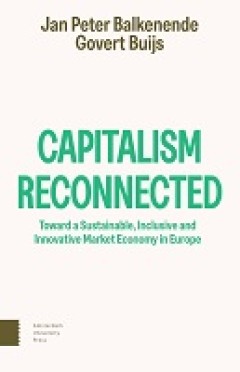
E-Book Capitalism Reconnected: Toward a Sustainable, Inclusive and Innovative…
Capitalism has gone astray. Today we face ecological exhaustion, persistent inequality, financialization, stress on communities, short-termism, and new power concentrations. An avalanche of new economic thinking and a reorientation of European values show the way toward a different economy. A new perspective is necessary if we want to implement the Sustainable Development Goals and if we consid…
- Edisi
- -
- ISBN/ISSN
- 9789048562633
- Deskripsi Fisik
- 401 halaman
- Judul Seri
- -
- No. Panggil
- 330.112 BAL c
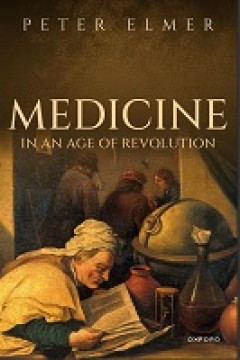
E-Book Medicine in an Age of Revolution
This work is the first major attempt since the 1970s to challenge the idea that the essential engine of medical (and scientific) change in seventeenth-century Britain emanated from puritanism. It seeks to reaffirm the crucial role of the period of the civil wars and their aftermath in providing the most congenial context for a re-evaluation of traditional attitudes to medicine. In the process, …
- Edisi
- -
- ISBN/ISSN
- 9780198853985
- Deskripsi Fisik
- 471 halaman
- Judul Seri
- -
- No. Panggil
- 610.1 ELM m
Edisi Kolektor Stephen Hawking : A Mind Without Limits (Apa yang diajarkan sa…
Lihatlah ke bintang-bintang di atas, bukan ke kakimu di bawah. Pahami apa yang kau lihat, dan bertanyalah tentang apa yang membuat Alam Semesta ini ada. Bertanyalah." - Stephen Hawking.
- Edisi
- -
- ISBN/ISSN
- 9786024411015
- Deskripsi Fisik
- 21 x 28 cm; 97 hlm
- Judul Seri
- -
- No. Panggil
- 051 BEN e
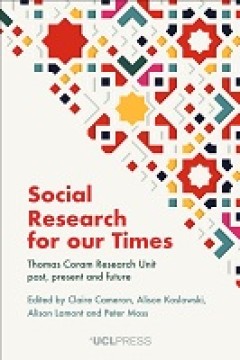
E-Book Social Research for our Times: Thomas Coram Research Unit past, presen…
For 50 years, researchers at UCL’s Thomas Coram Research Unit have been undertaking ground-breaking policy-relevant social research. Their main focus has been social issues affecting children, young people and families, and the services provided for them. Social Research for our Times brings together different generations of researchers from the Unit to share some of the most important result…
- Edisi
- -
- ISBN/ISSN
- 9781800084056
- Deskripsi Fisik
- 418 halaman
- Judul Seri
- -
- No. Panggil
- 907 CAM s
E-book Environment in the Courtroom Vol. 2
here are also a set of statutory offence provisions that proscribe speci-fied conduct. These offences can be prosecuted in the courts, and guilty de-fendants can be penalized by fines, prescribed conduct (such as soil or water remediation), and even imprisoned.Such offences are not pure criminal offences that require proof of intent. Rather, they are regulatory offences that require only proof …
- Edisi
- Vol. 2
- ISBN/ISSN
- 9781773853802
- Deskripsi Fisik
- 493 hlm
- Judul Seri
- -
- No. Panggil
- 347.01 CUL e
E-book Music Practices Across Borders : (E)Valuating Space, Diversity and Exc…
Music practices, understood as activities connected to humanly organized sound, extend beyond enclosed spaces both physically and metaphorically, crossing borders of all kinds. When they cross the borders of national states and create stable networks among musicians, fans, people involved in the music business, etc., they can be considered transnational. Cen…
- Edisi
- -
- ISBN/ISSN
- 9783839446676
- Deskripsi Fisik
- 215 hlm
- Judul Seri
- -
- No. Panggil
- 780.72 KAH m
E-book Gear Acquisition Syndrome : Consumption of Instruments and Technology …
Although not di-rectly related to GAS, it is worth mentioning that the German music instrument re-tailer Thomann (2019) hosts an annual summer camp as part of its ‘Gearhead Uni-versity’. YouTubers get the opportunity to review each piece of equipment in Thomann’s warehouse in a small village in southern Germany, document their ex-periences on video and share them online with fe…
- Edisi
- -
- ISBN/ISSN
- -
- Deskripsi Fisik
- 285 hlm
- Judul Seri
- -
- No. Panggil
- 780.2 HER g
E-book Global Strategy for The Conservation and Use of Eggplants
Common eggplant (Solanum melongena L.), also known as aubergine, brinjal eggplant or eggplant, is a warm season crop mainly cultivated in tropical and subtropical climates. Brinjal eggplant and S. melongena will be used interchangeably in this report. Two other cultivated eggplant species, scarlet eggplant (Solanum aethiopicum L.) and gboma eggplant (Solanum macrocarpon L.), have local importan…
- Edisi
- -
- ISBN/ISSN
- -
- Deskripsi Fisik
- 68 hlm
- Judul Seri
- -
- No. Panggil
- 635.6 GIO g
E-book Snow in the Tropics : A History of the Independent Reefer Operators
he supermarket presents us with a cornucopia of fruit, fish, and meat from near and far. Usually we haven’t thought too much about how it all got there and the fact that we can enjoy fruit from the tropics all year round is something that we usually take for granted. But we are constantly reminded of the perish-ability of these refrigerated and frozen foods. Bananas, for example, …
- Edisi
- -
- ISBN/ISSN
- 9789004393868
- Deskripsi Fisik
- 293 hlm
- Judul Seri
- -
- No. Panggil
- 387.5 LEN s
E-book Reimagining Urban Nature : Literary Imaginaries for Posthuman Cities
We, entangled humans and nonhumans, are at a critical point in managing environmental degradation, with human-induced environ-mental change occurring on a grand scale. Several environmental problems need urgent attention, including climate change, the sixth great extinction of plants and other animals, and increasing resource depletion in some of the most vuln…
- Edisi
- -
- ISBN/ISSN
- 9781802079081
- Deskripsi Fisik
- 280 hlm
- Judul Seri
- -
- No. Panggil
- 307.76 BOR r
E-book The Train That Had Wings : Selected Stories of M. Mukundan
Before the 1960s, Malayalam literature, whether poetry, novel,or short story, had been dominated by a parochialism centeredon the lives and experiences of Kerala, a small state of palmtrees, trading ports, and paddy fields in southwestern India.Most literary productions from this period in Kerala's historydepicted scenes, people, habits, and conflicts …
- Edisi
- -
- ISBN/ISSN
- 9780472901678
- Deskripsi Fisik
- 147 hlm
- Judul Seri
- -
- No. Panggil
- 891.3 MUK t
E-book Pacific Climate Cultures : Living Climate Change in Oceania
Cultural concepts and ecologies are vitally inseparable, mutually constitutive and made living through each other. Pacific philosophies understand oceans, lands and skies as agentive, malleable living forms participating in, constitutive of and responsive to cosmological and kinship-based relations capable of encompassing the perspectives of fish and the rel…
- Edisi
- -
- ISBN/ISSN
- 9783110591415
- Deskripsi Fisik
- 195 hlm
- Judul Seri
- -
- No. Panggil
- 363.7 CRO p
E-book The Institution of Criticism
he recognition that a literary text is embedded in a historical context that can be defined in cultural, political, and social terms has been common knowledge for sorne time. This insight, however, has not been fully appreciated in the examination of various forms of literary criticism-scholarly books and articles, journalistic essays, book reviews in newspapers, and the like. Yet studies…
- Edisi
- -
- ISBN/ISSN
- 9781501707186
- Deskripsi Fisik
- 288 hlm
- Judul Seri
- -
- No. Panggil
- 801.9 HOH t
E-book Youth in Indonesia
The youth of today are generally healthier, better educated, more urbanized, enjoy greater access to knowledge, and are more connected with the rest of the world than the preceding generations. A growing body of research attributes this marked improvement in the life situations of young people to socio-economic development and the ensuing prolonged transition to adulthood.1 Relative to their pa…
- Edisi
- -
- ISBN/ISSN
- -
- Deskripsi Fisik
- 152 hlm
- Judul Seri
- -
- No. Panggil
- 305.2598 ADI y
 Karya Umum
Karya Umum  Filsafat
Filsafat  Agama
Agama  Ilmu-ilmu Sosial
Ilmu-ilmu Sosial  Bahasa
Bahasa  Ilmu-ilmu Murni
Ilmu-ilmu Murni  Ilmu-ilmu Terapan
Ilmu-ilmu Terapan  Kesenian, Hiburan, dan Olahraga
Kesenian, Hiburan, dan Olahraga  Kesusastraan
Kesusastraan  Geografi dan Sejarah
Geografi dan Sejarah